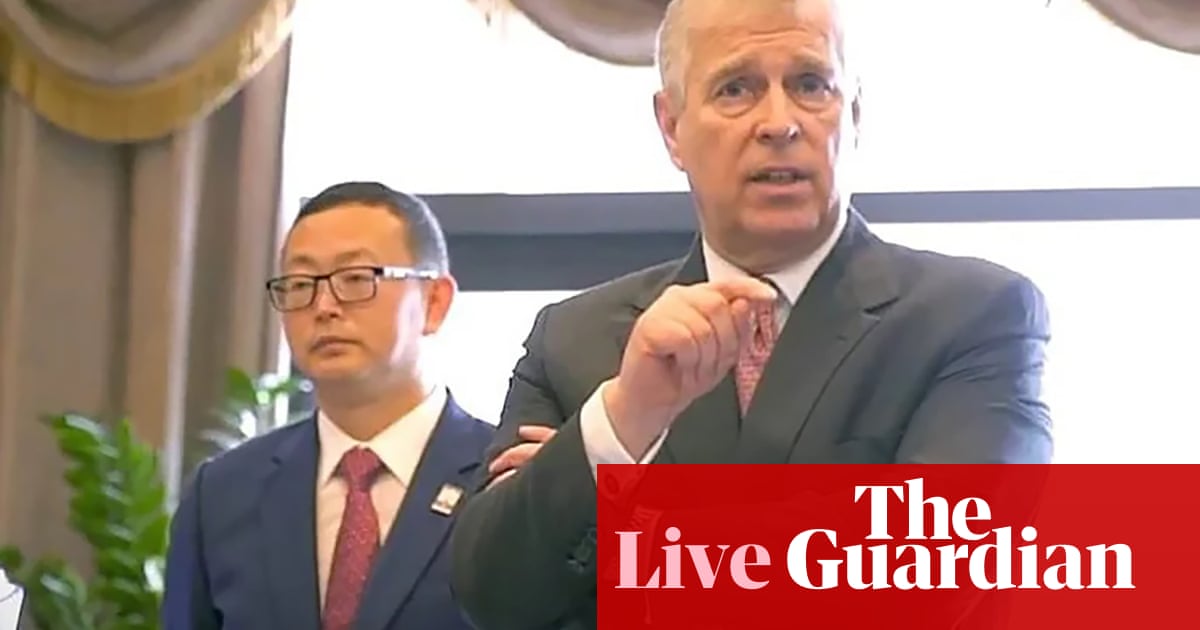
Given what we’ve learned and what we know, these very close relations that the prime minister is apparently attempting may not be wise, and the rather sycophantic tone the prime minister took with President Xi at the G20 a few weeks ago may not be very wise in light of what we now.
Jarvis said he did not agree with this assessment. Referring to what happened when David Cameron was prime minister, and he hosted President Xi during his visit to the UK, Jarvis said:
At least [Keir Starmer] least he did not take him to the pub for a pint.
Labour run
Devolution is a powerful tool for driving the local growth this country desperately needs, but its success hinges on recognising the diversity of UK cities and regions.
That’s why Key Cities supports large parts of the devolution bill, which will empower many of our local leaders. However, our members are concerned that a “one-size-fits-all” model could have a counter-intuitive effect. Our 2024 survey of our network (covering approximately 10% of the UK population), found that a quarter of city members would like to better understand how such a model would be applied in very different and unique geographic areas, and for a third it would be undesirable to go down the route of a combined authority (20% are already in a combined authority).
Labour is cancelling elections to keep Labour in power at county council level, they are wrong.
Before there’s a tinfoil hat shortage, a reminder of who currently controls County Councils in England:
Conservative: 19
Lib Dem: 2
Labour: 0
If this were a Government plot to ‘cancel democracy’, they wouldn’t even be benefitting anywhere…
FWIW there is precedent for this. Council elections in North Yorkshire, Somerset, Cumberland, and Westmorland & Furness were postponed in February 2021 – 3 months before scheduled elections – for the same reason (transition from CC to UA).
2.04pm.) A Conservative party spokesperson said:
The Conservatives believe in local democracy. Under the last Government devolution was extended across England, and councils which wanted to unitarise were supported to do so.
Angela Rayner’s announcement is part of a plan by Labour to strip councils of their powers to make choices and to impose reorganisation from Westminster without local consent.
The Green party has also claimed the plans are undemocratic. This is from Adrian Ramsay, the Green party’s co-leader, echoing some of the points made by the District Councils’ Network. (See 4.58pm.)
Local democracy is in urgent need of reform but this White Paper does not deliver the real change our local councils need.
It steals power away from local people and risks making the real changes required harder to achieve, including building the homes we need, cleaning our rivers, reforming social care and greening our local economies.
We should trust local communities to make the right decisions on homes, food, energy, nature and adapting to the climate crisis.
Instead, these plans risk moving power away from local councils to huge remote super councils and regional mayors.
And the Liberal Democrats have criticised the plans for neglecting social care (a priority issue for the party). Vikki Slade, the party’s local government spokesperson, said:
Council budgets are on the brink. The previous Conservative government pushed so many local authorities to the edge of bankruptcy.
Without properly investing in social care more of the vital services that councils provide will disappear to those who desperately need them.
China was not in the enhanced tier, “it’s not worth having”.
Jarvis said that he had known Tugendhat a long time, and was asking him to trust him when he said officials told them the scheme was not “ready to go” when Labour took office.
4.04pm.) He said, when he was working as a journalist before he became an MP, he was with Theresa May when she visited China. And May was praised by Chinese state media because she sidelined human rights issues, he said.China.
Jarvis said the government had to “weigh a number of considerations” when dealing with China, but that national security would always come first.
China policy.
Given what we’ve learned and what we know, these very close relations that the prime minister is apparently attempting may not be wise, and the rather sycophantic tone the prime minister took with President Xi at the G20 a few weeks ago may not be very wise in light of what we now.
Jarvis said he did not agree with this assessment. Referring to what happened when David Cameron was prime minister, and he hosted President Xi during his visit to the UK, Jarvis said:
At least [Keir Starmer] least he did not take him to the pub for a pint.
China in the enhanced sphere for FIRS (ie, to subject to to extra checks, because of the higher risk it poses). He said Tom Tugendhat, the former security minister, has said the last government was about to put China on the list in this category.
And he said the UK was buying solar panels from China made with slave labour. “Far from challenging China on human rights, it now appears we are turning a blind eye to them,” he said.
In response, Dan Jarvis, the Home Office minister, said FIRS was not ready to go live when Labour took office. He said the plans were “not sufficiently robust”.
As for whether China would be included in the enhanced sphere, he said the Home Office would be setting out its approach to using this sphere in due course.
China, he says the government’s position is to challenge where it must, compete where it has to, and cooperate where it can.
He says the details of the foreign influence registration scheme (FIRS) will be set out in the new year, and the scheme will come operational in the summer, he says.
China will start imminently.inspired by the version in Estonia and he claimed it would cost £41bn. Truss reportedly described this as a “great idea”, but even she drew the line at implementing.
As well as cost, another disadvantage with flat taxes is that they do not allow scope for exemptions – like the one farmers have enjoyed from inheritance tax.
In her speech this afternoon Angela Rayner, the deputy PM, said that, as well as extending the number of mayoral authorities, she would be given them “unprecedented new powers”. Here is the passage from the speech where she explained what those powers would be.
Too often, mayors hands are tied by Whitehall … So we will create a clear and transparent route for all mayoral combined authorities to receive an integrated settlement.
This means moving resources between projects that matches what the people need.
We will give mayors new powers over strategic planning and new call-in powers so that they can build the homes we need and plan for growth on a larger scale.
And we will get mayors working more closely with Homes England to unlock new homes.
The most mature areas will be able to set the strategic direction of any future affordable homes programme.
We will devolve future funding to support regeneration and housing delivery, and we will consolidate adult skills funding, introducing joint ownership of the local skills improvement plan and new routes to influence 16 to 19 provision.
And we will devote funding to support economically inactive people into work, and funding for retrofit will be included in the integrated settlements by the end of the parliament.
We will also create a statutory role for mayors in governing the rail network, with a right to request on rail devolution.
This all means easier commutes, across more joined-up transport links, new homes properly connected to local infrastructure and skills provision that matches local job opportunities.
And this is how she summed up the plans.
We have an economy that hoards potential and a politics that hoards power. So our devolution revolution will deliver the greatest transfer of power from Whitehall to our communities in a generation, empowering those communities to realise their potential.
No other government has been this ambitious about devolution, a mission that binds all departments across government, a long-term mission over generations rather than a short-term fix.
Source: theguardian.com


















